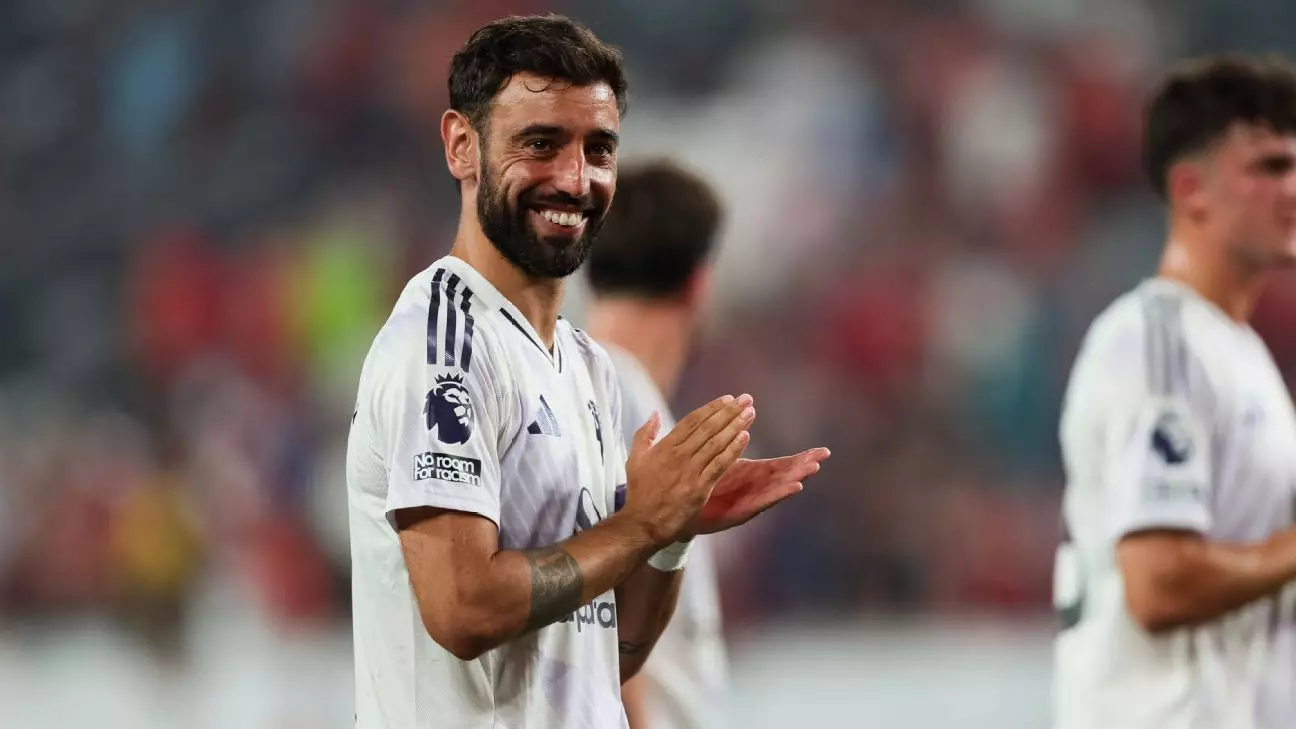In an era marked by volatile transfers and exorbitant spending, Bruno Fernandes’s decision to remain at Manchester United this summer sent a powerful message about loyalty, value, and leadership. Amid considerable speculation linking him to a lucrative move to Saudi Arabia, Fernandes’s choice underlines the importance of stability and conviction in a club undergoing transformation. His stay is not just strategic for Manchester United but also pivotal for maintaining the team’s core identity and aspirations of regaining dominance.
The midfielder’s performance in their preseason match against West Ham, where he scored twice, reaffirmed his undeniable value. One penalty and a stunning long-range strike showcase not just his skill but his ability to influence critical moments on the pitch. Fernandes’s presence provides a blueprint of consistency and leadership that the team desperately needs, especially amid the squad’s ongoing adjustments and tactical evolutions.
Leadership Beyond the Goals
Fernandes’s influence extends far beyond his on-field goals. As captain or de facto leader, his role encompasses inspiring teammates, setting standards, and embodying the club’s ambitions. Manager Ruben Amorim highlights Fernandes as a central figure both in and out of the dressing room. His leadership is essential, especially with the squad integrating new signings and youth players eager to make their mark.
Amorim points out that Fernandes’s versatility allows him to adapt to different tactical roles, which is increasingly vital in the modern game. Whether stationed as a deep-lying midfielder or a No. 10, Fernandes’s understanding of the game elevates the entire team’s performance. However, Amorim also recognizes the challenges Fernandes faces—his tendency to overextend his efforts, sometimes leading to frustration or lapses in focus. These qualities, while human and relatable, underscore the need for balance and support within the squad.
The Challenges of Evolving Tactics and Leadership
As Manchester United seeks to rebuild its identity under new management, Fernandes’s adaptability will be tested continually. The tactical shift observed in the preseason, with Fernandes taking on a more advanced role alongside new signing Matheus Cunha, signifies a strategic move to maximize his attacking prowess. Nonetheless, this transition comes with hurdles, as Fernandes adjusts to new responsibilities and expectations.
One of the most compelling facets of Fernandes’s leadership is his resilience—playing through pain, enduring frustration, and constantly exerting himself for the collective good. Yet, Amorim emphasizes that even the most influential players need guidance and a team around them to exploit their full potential. Fernandes’s journey highlights the delicate balance between individual brilliance and team cohesion, a dynamic that will largely determine Manchester United’s trajectory this season.
The Road Ahead: Leaders Inspiring Change
Manchester United’s future hinges on the ability of its leaders, with Fernandes at the forefront. His choice to stay reflects a commitment that can catalyze internal unity and motivate the squad to elevate their game. While tactical adjustments and new signings contribute to the puzzle, the human element—leadership, dedication, and resilience—remains paramount.
In a league where winning often depends on moments of brilliance and unwavering spirit, Fernandes embodies both. His decision not only influences team dynamics but also sets a precedent for the club’s culture. As United aims to reclaim their stature, the role of influential players like Fernandes will remain crucial, proving that sometimes, strength lies not just in talent but in unwavering loyalty and leadership’s transformative power.


Leave a Reply